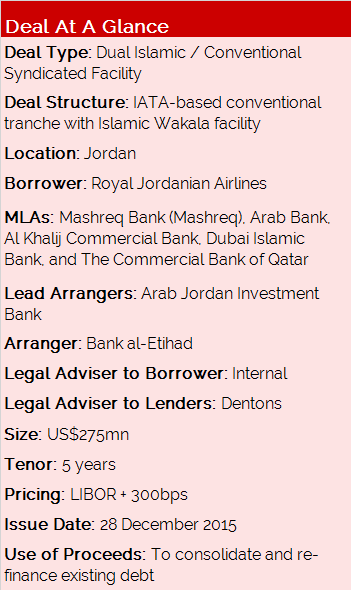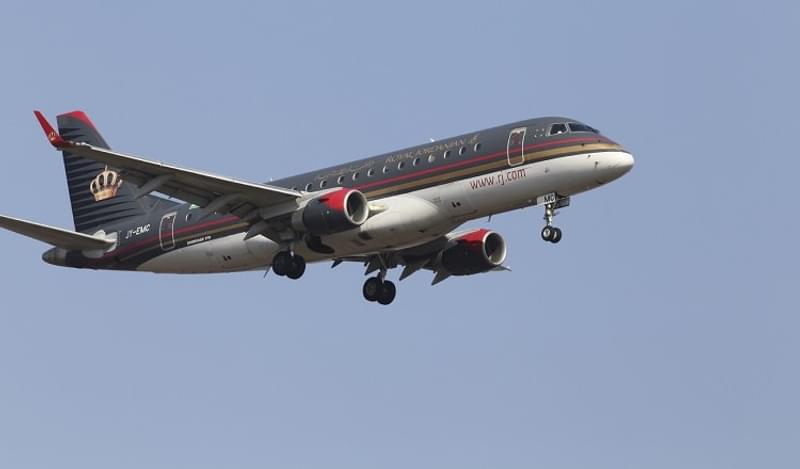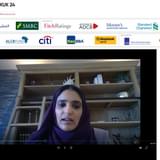 Background
Background
As the flagship Jordanian airline and a the leading carriers in the Levant, Royal Jordanian Airlines was in a strong financial position up until the 2012, when the Arab Spring started to deeply impact air travel in the region; coupled with that, the ever increasing price of oil began to sink its teeth into the company’s balance sheet.
The company needed to re-finance a range of existing debt facilities, and in Q1 2015 enlisted a syndicate of seven local and regional banks to help restructure its debt.
In September 2015 the mandated group of banks began syndicating a dual Islamic and conventional facility worth approximately US$250mn, which was increased to US$275mn upon strong positive reception. The deal closed in the final days of December 2015.
Transaction Breakdown
The US$275mn five year dual IATA principles based conventional and Islamic Wakala syndicated facility was priced at LIBOR + 300bps and helped Royal Jordanian Airlines restructure existing medium-term debts.
The Islamic facility helped the airline access new pockets of regional liquidity that had previously gone untapped by Jordanian corporates, and consolidating the majority of its existing securities into one dual tranche facility allowed it to save between 15-20% on total payments and streamlined its payment processes and tenors.
At the same time, the drop in oil prices throughout 2015 helped Royal Jordanian Airlines return to a strong financial standing.
“The facility was highly oversubscribed, which allowed us to price the deal quite aggressively. And despite some of the challenges being faced by the company the deal helped streamline and simplify its debt repayment structure,” said Chiradeep Deb, Head of Corporate Finance & Syndications at Mashreq Bank.
“The inclusion of the Islamic facility helped open the airline to untapped sources of liquidity in the GCC, where there is pent up demand for high quality corporates from the Levant and other neighbouring regions.”









